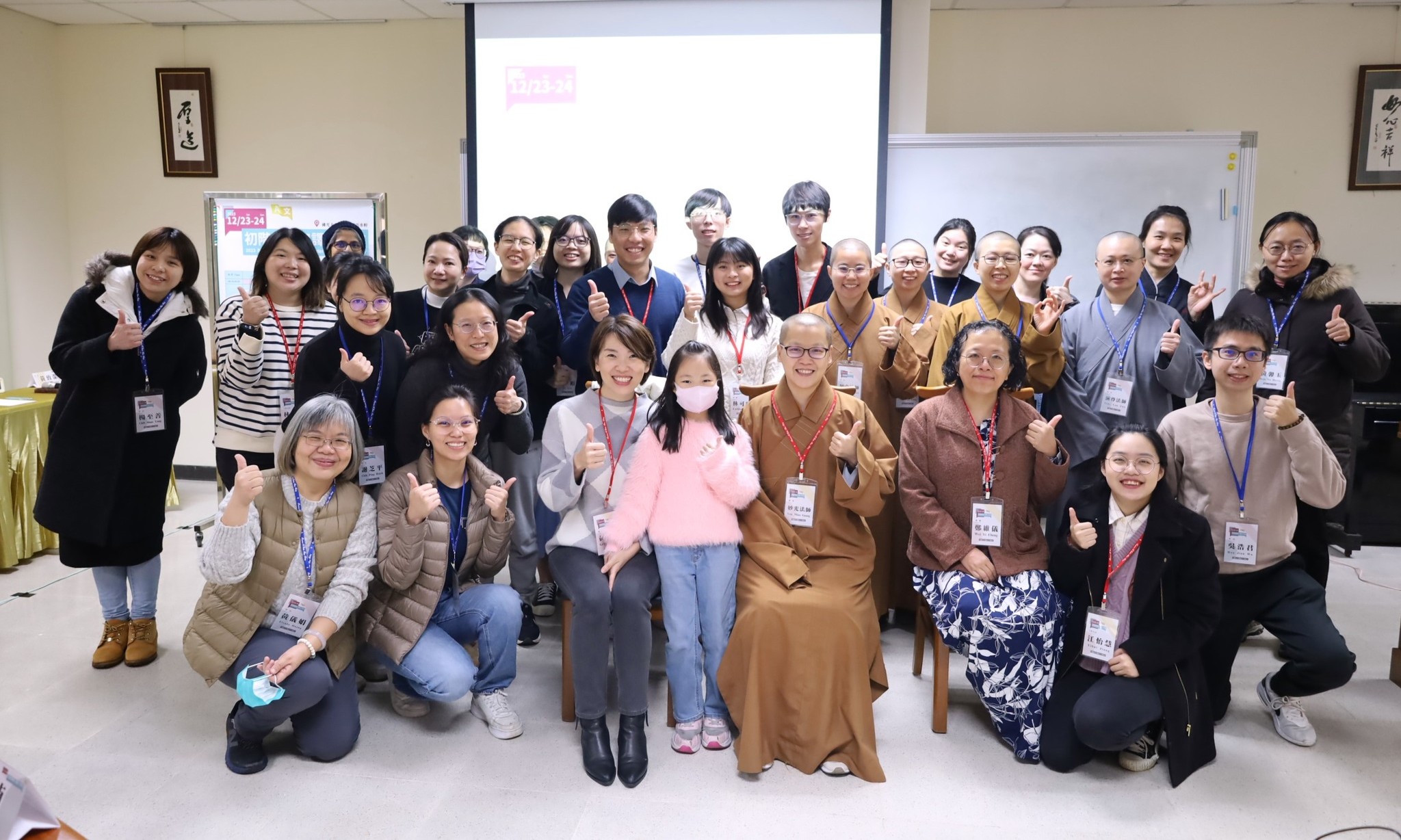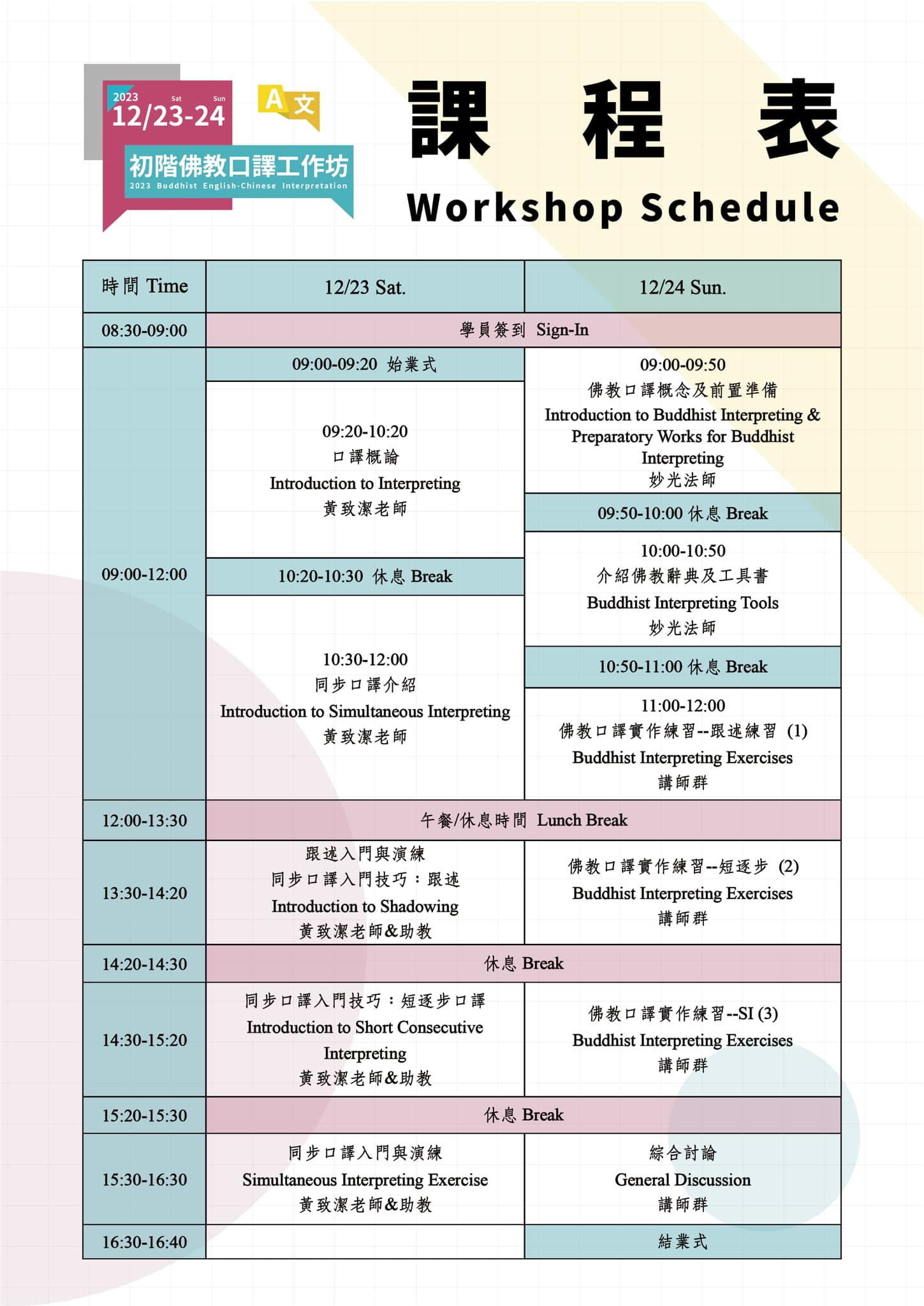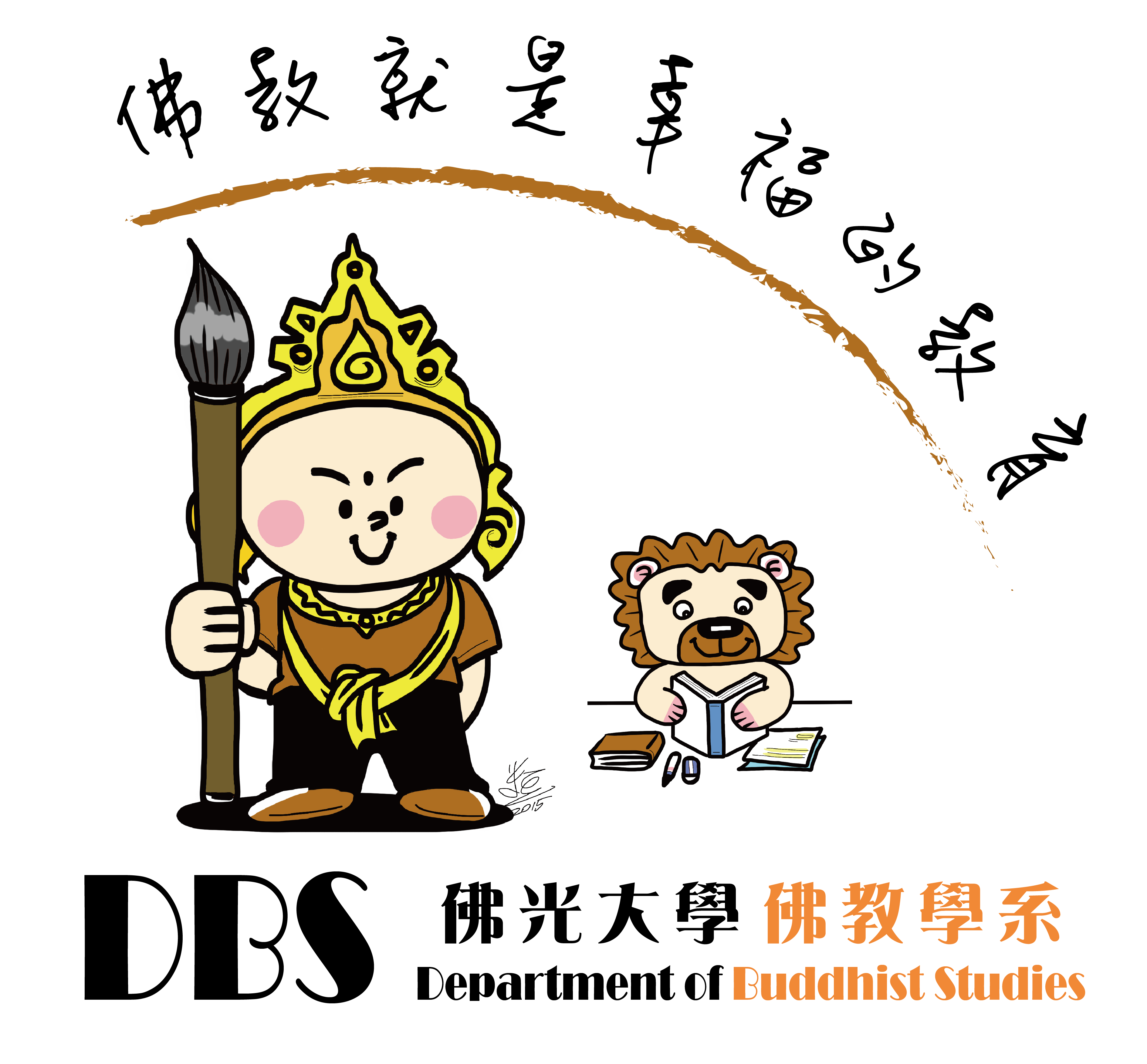
This workshop marks the inaugural endeavor to provide comprehensive training in Buddhist interpretation, enabling aspiring individuals to receive high-quality professional instruction in this field. The ultimate objective is to establish certificate programs for further development.
On the first day of the workshop, renowned interpreter Ms. Grace Huang, along with two teaching assistants, Cathleen Lin (Lin Keqing) and Carrier Bao (Bao Kaili), both M.A. students from National Taiwan University, conducted classes. They provided valuable instruction on the fundamentals of the interpretation profession and techniques. The classes included introduction to the types, methods, and roles in interpreting work, emphasizing the spirit of "inclusivity." Ms Huang stressed the human-centered approach and the endeavor to build a bridge of communication between languages, often described as the extreme sport of languages. All three shared their own interpreting experiences, encouraging the participants not to fear setbacks and pressure but to persevere in learning and training, ultimately witnessing the results.
On the second day of the workshop, Ven. Miao Guang, the Vice-Chair of the Institute of Humanistic Buddhism and a former personal interpreter for Ven. Master Hsin Yun, conducted the instruction. She provided insights into the tasks associated with Buddhist interpretation, including preparation and the necessary tools. Furthermore, she demonstrated how online resources can enhance the practice of Buddhist interpretation. "The Buddha is the earliest interpreter in Buddhism!" Venerable Miao Guang explained that according to the scriptures, the Buddha, in order to widely disseminate the truth, had already used various languages for teaching, pioneering the art of translation. This reflects the fundamental spirit of Buddhist interpretation as being dedicated to "Dharma propagation."
Venerable Miao Guang shared her experience as a traveling interpreter and outlined the guidelines for Buddhist interpretation as "Three Learnings, Three Wisdoms, and the Noble Eightfold Path." She encouraged participants to, before each interpretation, adjust their breath, collect their body and mind, and sincerely aspire, saying, "May the language I speak be for the propagation of the Dharma, faithful to the speaker, and beneficial to sentient beings." During the interpretation process, she emphasized the importance of courageously facing and managing nervousness, focusing on the speaker and the Buddha's teachings, which will inevitably lead to improvement.
In the afternoon, Ven. Miao Guang and Dr. Wei-Yi Cheng, the Head of the Department of Buddhist Studies, jointly guided the participants in practical "Buddhist Interpretation Exercises." The exercises were divided into two groups, one for Chinese to English interpretation and the other for English to Chinese interpretation. Participants practiced interpreting Buddhist materials, including paraphrasing and short step-by-step interpretations.
During the concluding discussion, participants from various backgrounds enthusiastically sought guidance from the instructors. They expressed that the two-day workshop had been highly practical and beneficial, and they eagerly looked forward to participating in an advanced Buddhist interpretation certificate program. Subsequently, during the closing ceremony, Ven. Miao Guang and Dr. Wei-Yi Cheng presented the "Beginner's Buddhist Interpretation Training Certificate" to the 22 participants who had completed the 120-hour course in its entirety.


 College and Department of Buddhist Studies, FGU
College and Department of Buddhist Studies, FGU
